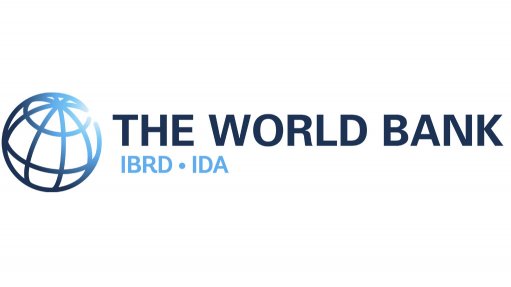August PPI increases, pointing to better selling market for manufacturers
The rate of producer price index (PPI) inflation increased to 2.4% year-on-year in August and was also higher than the 1.9% year-on-year recorded in July, mainly on account of the changes in the food and petroleum subcomponents, financial services company Investec notes.
The Steel and Engineering Industries Federation of Southern Africa (Seifsa) welcomes the increase in the PPI, as per the data released by Statistics South Africa (Stats SA) on September 28, and says it hopes businesses will benefit from the positive trajectory through higher selling prices.
Seifsa chief economist Michael Ade describes the data as encouraging, especially considering that selling prices have been rising since April and May, spanning the Covid-19 pandemic-induced economic lockdown Alert Levels Four and Five.
He says the selling price inflationary trend augurs well and should help to reduce operational cost pressures on businesses and boost margins, since companies will now have leeway to pass cost increases to intermediate and final consumers.
The data released by Stats SA indicates that the yearly percentage change in the PPI for intermediate manufactured goods increased from 2.4% in July, to 3.2% in August. The increase is consistent with the yearly change in the PPI for final manufactured goods, which also increased from 1.9% in July to 2.4% in August, generally spelling good news for local manufacturers.
In the petroleum category – which holds the second-largest weighting of 19.38% in the PPI basket – Investec reports a decrease in the magnitude of the negative contribution to -0.4% in August, compared with -0.5% in July.
This stemmed from the moderation in the yearly rate of deflation to -1.9% year-on-year in August from -2.5% year-on-year in July.
Investec notes that this, in turn, is reflective of the deceleration in the rate of deflation in the fuel price. Specifically, the petrol and diesel price yielded yearly rates of change of -6.7% year-on-year for petrol and -6.3% year-on-year for diesel, compared with the double digit year-on-year declines in the second quarter of this year.
Inflation in the food, beverages and tobacco component – which holds the largest weighting at 36.28% – lifted in August to 3.4% year-on-year from a prior 3.2% year-on-year, with the contribution rising to 1.2%, from 1.1% in July.
Within this category, Investec reports that food price dynamics are the main driver. Manufactured food price inflation increased in August to 4.2% year-on-year from a previous 3.7% year-on-year, as meat prices (which hold a sizeable weighting in the food category) rose by 0.9% year-on-year after three consecutive months of deflation.
In addition, Investec reports that grain mill products inflation remained elevated in August but moderated to 9.7% year-on-year from 10.5% year-on-year in July.
Based on these figures, Investec notes that the recessionary economic environment and uncertain recovery prospects, are likely to restrict the extent to which producers can pass on price increases, where protecting sales volume growth and competitiveness gains are considerations.
Ade points out that the latest PPI data will build on August’s progressive data and continue to provide distressed businesses with the opportunity to manoeuvre around cost-push inflation, towards their sustainability.
However, he says companies cannot invariably increase selling prices owing to countervailing factors like insufficient demand and poor consumer spending.
These factors remain significant challenges to the metals and engineering cluster of industries, where the demand for their intermediate goods is a derived demand. This means that the demand for the goods produced in the industry is usually based on the demand for consumer goods, which they help to produce.
Therefore, an increase or decrease in consumer demand and a corresponding increase or decrease in consumer spending will further boost or hinder production in the metals and engineering sector, Ade explains.
However, he cautions that the prevailing uncertainty from the Covid-19 pandemic and a significant decrease in household final consumption expenditure by 49.8% in the second quarter could pose major challenges to the metals and engineering industry since the highlighted constraints may lead to a further slowdown in growth, employment and gross fixed capital formation.
“Nevertheless, we recommend that business executives continue to prioritise both the economy and the health of all employees, given the need to remain sustainable in the so-called ‘new normal’ environment. Companies should take advantage of rising selling prices and the impending uptick in demand from inter-linked industries in order to boost capacity utilisation and production,” Ade concludes.
Comments
Announcements
What's On
Subscribe to improve your user experience...
Option 1 (equivalent of R125 a month):
Receive a weekly copy of Creamer Media's Engineering News & Mining Weekly magazine
(print copy for those in South Africa and e-magazine for those outside of South Africa)
Receive daily email newsletters
Access to full search results
Access archive of magazine back copies
Access to Projects in Progress
Access to ONE Research Report of your choice in PDF format
Option 2 (equivalent of R375 a month):
All benefits from Option 1
PLUS
Access to Creamer Media's Research Channel Africa for ALL Research Reports, in PDF format, on various industrial and mining sectors
including Electricity; Water; Energy Transition; Hydrogen; Roads, Rail and Ports; Coal; Gold; Platinum; Battery Metals; etc.
Already a subscriber?
Forgotten your password?
Receive weekly copy of Creamer Media's Engineering News & Mining Weekly magazine (print copy for those in South Africa and e-magazine for those outside of South Africa)
➕
Recieve daily email newsletters
➕
Access to full search results
➕
Access archive of magazine back copies
➕
Access to Projects in Progress
➕
Access to ONE Research Report of your choice in PDF format
RESEARCH CHANNEL AFRICA
R4500 (equivalent of R375 a month)
SUBSCRIBEAll benefits from Option 1
➕
Access to Creamer Media's Research Channel Africa for ALL Research Reports on various industrial and mining sectors, in PDF format, including on:
Electricity
➕
Water
➕
Energy Transition
➕
Hydrogen
➕
Roads, Rail and Ports
➕
Coal
➕
Gold
➕
Platinum
➕
Battery Metals
➕
etc.
Receive all benefits from Option 1 or Option 2 delivered to numerous people at your company
➕
Multiple User names and Passwords for simultaneous log-ins
➕
Intranet integration access to all in your organisation


















